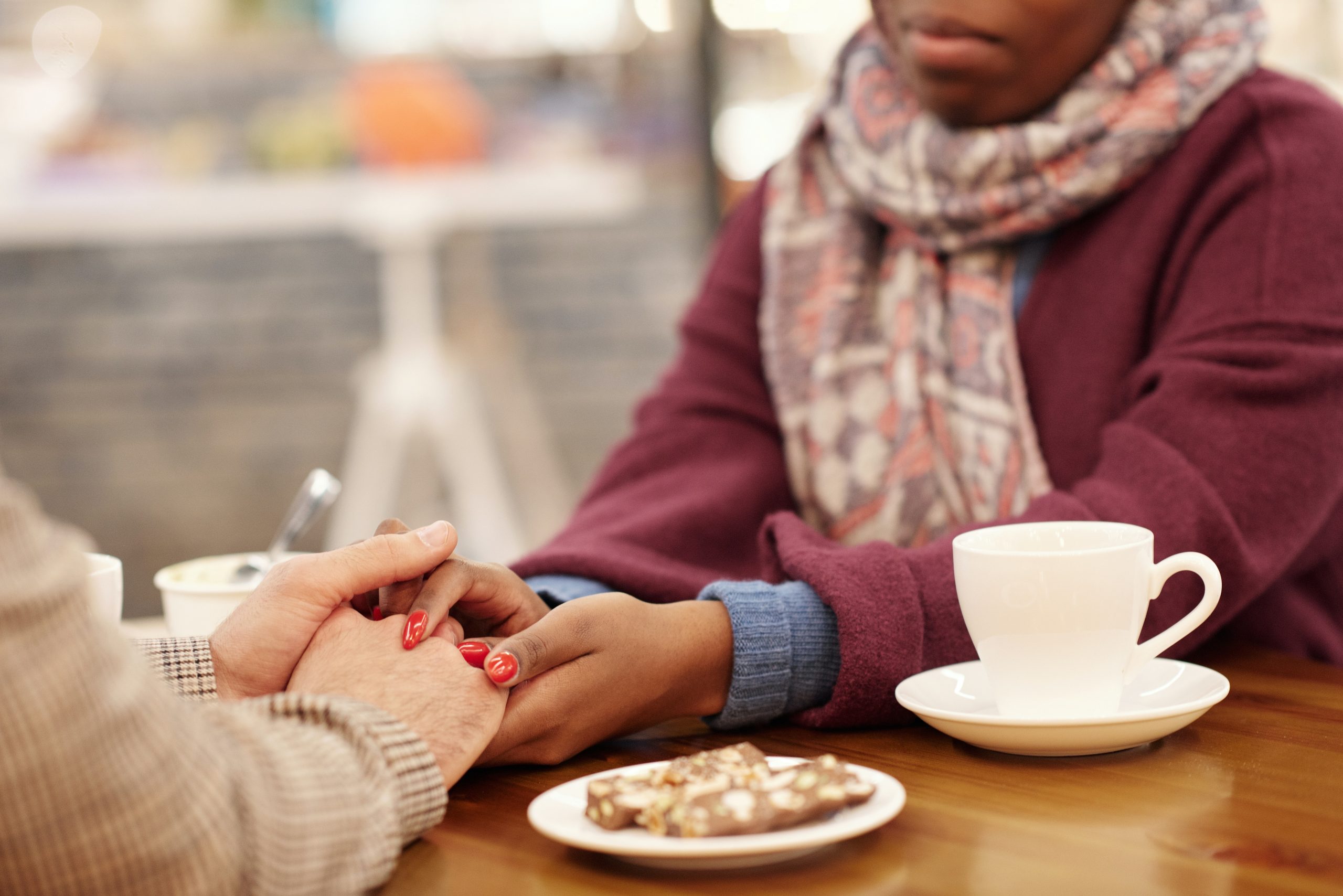Alcohol Awareness Month: How Addiction Affects Loved Ones
April 29, 2022

Loving Someone Who’s Addicted
When it comes to the topic of addiction, much focus is often placed upon the person who is actively struggling with their addiction (alcohol, other substances, gambling, etc.) or has in the past. However, the people who grapple with addiction are not the only ones afflicted by their battle with addiction. The loved ones of addicts also become deeply affected as they watch the addict whom they love engaging with addiction, going through relapses, or even trying to walk the path toward recovery.
To love someone who is addicted is to be worried about them most hours of the day. It is finding it difficult to trust their words and actions. It is a hypervigilance for any changes in their demeanor. Often, it may feel like not knowing what the right choice is between enabling behavior, wanting to protect someone you love, and the desire to protect your own mental health. Needless to say, to be the loved one of an addict can be a tumultuous and traumatizing experience.
Side Effects

The combination of emotions and behaviors experienced by the loved ones of those struggling with addiction can feel complicated and anxiety-inducing. In fact, it’s not unusual for these individuals to feel an overall sense of stress on their body, both physically and mentally. A multitude of “side effects” commonly correspond to having a relationship with someone who struggles with addiction, such as:
- Strained familial/social relationships
- Developmental issues for children and teens
- Emotions like guilt, rage, sadness, aggression, resentment, confusion, embarrassment, and heightened anxiety
- Financial struggles
- Covering up or enabling the loved one’s addiction struggles
- Feeling as though one’s physical security at risk
- Repeated exposure to trauma/heightened stress response can lead to mental health diagnoses like depression, generalized anxiety disorder, C-PTSD, and others.
The above list is only a sampling of ways one can be affected by their loved one’s addiction. It is important to note that “side effects” can vary from person to person and can be impacted by factors like age or the type of relationship one shares with the person who struggles with addiction.
While family, children, friends, and romantic partners endure the trauma of watching someone they care about succumb to the devastating effects of addiction, it’s also not unusual for those closest to develop the “side effect” of unhealthy coping mechanisms, codependency being among the most common.
Codependency
 What is codependency? According to Mental Health America (a nonprofit committed to mental health advocacy), “Codependency is a learned behavior that can be passed down from one generation to another. It is an emotional and behavioral condition that affects an individual’s ability to have a healthy, mutually satisfying relationship.” Codependency/codependent behavior is often found in the spouse, family, and/or intimate friends of a person afflicted with alcohol/drug dependence (or other addictions), someone who participates in a dysfunctional relationship, or someone who grew up in a dysfunctional family dynamic. Additionally, codependent behaviors often form during one’s childhood and can be carried into adulthood, if left unchecked.
What is codependency? According to Mental Health America (a nonprofit committed to mental health advocacy), “Codependency is a learned behavior that can be passed down from one generation to another. It is an emotional and behavioral condition that affects an individual’s ability to have a healthy, mutually satisfying relationship.” Codependency/codependent behavior is often found in the spouse, family, and/or intimate friends of a person afflicted with alcohol/drug dependence (or other addictions), someone who participates in a dysfunctional relationship, or someone who grew up in a dysfunctional family dynamic. Additionally, codependent behaviors often form during one’s childhood and can be carried into adulthood, if left unchecked.
Like the “side effects” of addiction for loved ones, the characteristics and severity of codependent behavior can vary from person to person. Here are a few characteristics often attributed to codependency (a more complete list can be found here):
- An exaggerated sense of responsibility for the actions of others
- A tendency to do more than their share, all of the time
- An extreme need for approval and recognition
- A sense of guilt when asserting themselves
- Problems with intimacy/boundaries
Being a person afflicted by codependency can have incredibly damaging effects on the way the codependent person forms and maintains relationships with others. Moreover, codependency is the cause of a number of destructive behavioral patterns that can impact someone’s day-to-day living.
Because love runs deeply for those we care about, it’s common for the loved ones of addicts to feel the urge to “fix” addiction-related problems/consequences for them, which is decidedly not the responsibility of an addict’s loved ones. When recovering from codependency/codependent behaviors, it quickly becomes clear how critical it is to separate yourself from not just the choices, actions, and consequences of the addict. It’s key to understand what is your responsibility and what is theirs – to create and maintain strong boundaries. Boundaries are an important piece of therapy for a recovering codependent and a form of self-care to improve mental health.
For the recovering codependent, the process of un-learning codependent behavior may feel difficult and selfish in the beginning. In reality, it is a radical act of self-love and self-preservation. Moreover, this process is vital for healing mind and spirit. When undergoing therapy and recovery for codependency, it’s important to carve out plenty of time for self-care. As the old adage goes, one can’t pour from an empty cup. Ask yourself what you need to feel nourished and take time to do it. We are all worthy of healing. You deserve it.
“I Think They Might Have a Problem”
The first step for recovery, for both the addict and their loved ones, is acknowledging the problem. Once that first step is taken, a functional treatment plan can be created. Signs that someone is struggling with addiction can range from subtle to severe, and they tend to have reach across multiple area of one’s life: appearance, mood, relationships, and occupational duties. There are many signs that your loved one might be struggling with addiction, from isolation to poor grooming. A more complete checklist of these possible signs can be found here.
Before addressing someone you love, it’s imperative to ensure your concern is warranted. According to the American Addiction Center, “When looking for the potential signs of addiction, remember that substance abuse affects many areas of an individual’s life, and one or two changes in habits or appearance do not necessarily prove that a loved one is abusing drugs.” However, if you are feeling genuinely concerned about someone you love, approaching them respectfully and calmly is crucial. Jumping the gun and speaking from a place of anger and accusation is not likely to reap a productive conversation.
Professional support from a licensed therapist may be needed for everyone involved (individually, together, or both) to help heal and/or mediate.
Resources for Getting Support
If you are the loved one of an addict, remember that you are never alone in regard to your experience. There are a number of communities and resources to obtain compassionate support and help navigating the active addiction or recovery of your loved one. Here are a few:
- https://al-anon.org/ (For Families and Spouses)
- https://adultchildren.org/ (for Adult Children of Alcoholics)
- https://www.samhsa.gov/find-help/national-helpline
- https://www.alcohol.org/helping-an-alcoholic/family-member-or-relative/
- https://americanaddictioncenters.org/rehab-guide/guide-for-families-i
- Codependent No More by Melody Beattie (considered one of the best books about codependency and how to recover from codependent behavior)
- https://www.thehotline.org/search-our-resources/ (Domestic Abuse Hotline)
There is hope. Foundations Health and Wholeness is here for you, regardless of your relation to addiction. Foundations wants to see you and your loved ones heal and thrive. If you would like to make an appointment with one of our licensed therapists, please call our client engagement team at 920-437-8256. YOU matter.
Maggie F., Grants and Content Manager
Eileen Kozlovsky, LPC, CSW
PS: If you’re concerned that YOU may be struggling with addiction or an unhealthy relationship with alcohol consumption, see our previous post here for information and more resources to get the help you need. You don’t need to struggle in silence. Get the help you deserve today. ❤
Sources
https://www.hazeldenbettyford.org/articles/enabling-fact-sheet
https://www.addictioncenter.com/addiction/how-addiction-affects-the-family/
https://www.healthline.com/health/living-with-an-alcoholic#impact-of-addiction
https://www.peacevalleyrecovery.com/blog/how-drug-addiction-affects-the-entire-family/
https://www.healthline.com/health/living-with-an-addict#living-with-addiction
https://www.mhanational.org/conditions/co-dependency
https://americanaddictioncenters.org/rehab-guide/guide-for-families-i
https://www.samhsa.gov/find-help/national-helpline
https://www.alcohol.org/helping-an-alcoholic/family-member-or-relative/
